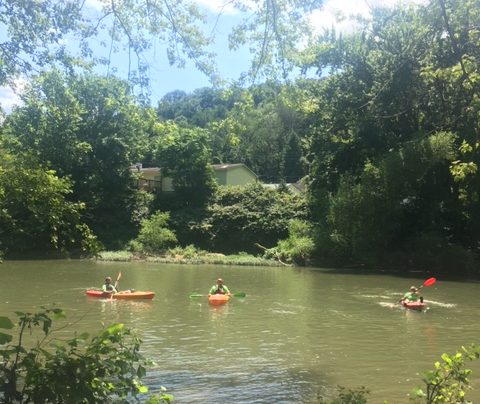The state Department of Environmental Protection has filed a motion in federal court to intervene in a proposed settlement to limit mining pollutants in streams.
At the heart of the issue is the Guyandotte River and the alleged failure of the DEP to administer water testing and limits for ionic toxicity in 11 state streams that affect 100,000 people. As a result, conservation groups filed a lawsuit.
The U.S. Environmental Protection Agency has proposed to settle the lawsuit by agreeing to establish specific water quality standards for mining runoff. Environmental groups celebrated the settlement and said it will restore aquatic life and the health of the streams.
“The consent decree comes after decades of advocacy and legal action by the Sierra Club and its partners to compel the EPA to fulfill its obligations under the Clean Water Act,” the Sierra Club said in a statement.
However, on April 22, the DEP filed a motion to have a seat at the table, which possibly could change the direction of the proposed settlement. In the motion the DEP said its interest could not be adequately represented by existing parties in the lawsuit, i.e. the EPA.
“As the primary regulator of water quality in the State of West Virginia, the WVDEP is flummoxed as to why it has been kept in the dark regarding a proposed settlement which must have been months in the making,” DEP said in the motion.
The state organization also said it was “astounded” that the EPA had not mounted a defense against the allegations made by the environmental groups in the lawsuit.
State leaders have also questioned the EPA’s proposed settlement, including U.S. Sen. Joe Manchin D-W.Va.
“If the EPA has any legitimate water quality concerns, they should have worked with the West Virginia Department of Environmental Protection,” Manchin said in a statement. “Which knows our waterways better than the federal government ever will. Instead of collaborating with the state, it appears the EPA colluded with environmental groups to enter into a ‘sue and settle’ agreement that bypasses the regulatory process and expands federal authority without any accountability.”
The three environmental groups on the lawsuit are the Sierra Club of West Virginia, the Highlands Conservancy, and the West Virginia Rivers Coalition.
The proposed settlement is open for comments from the public until April 29.




















